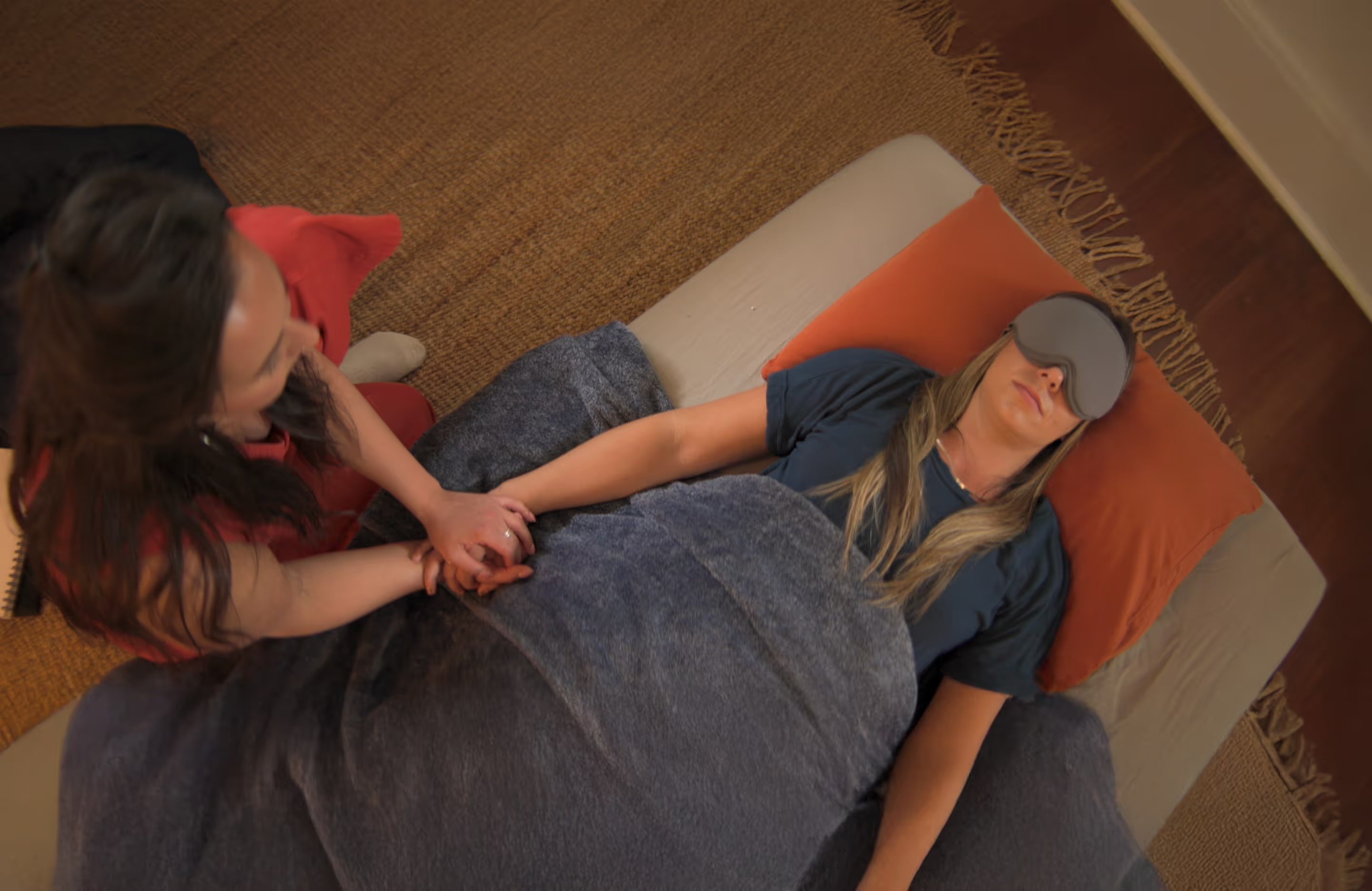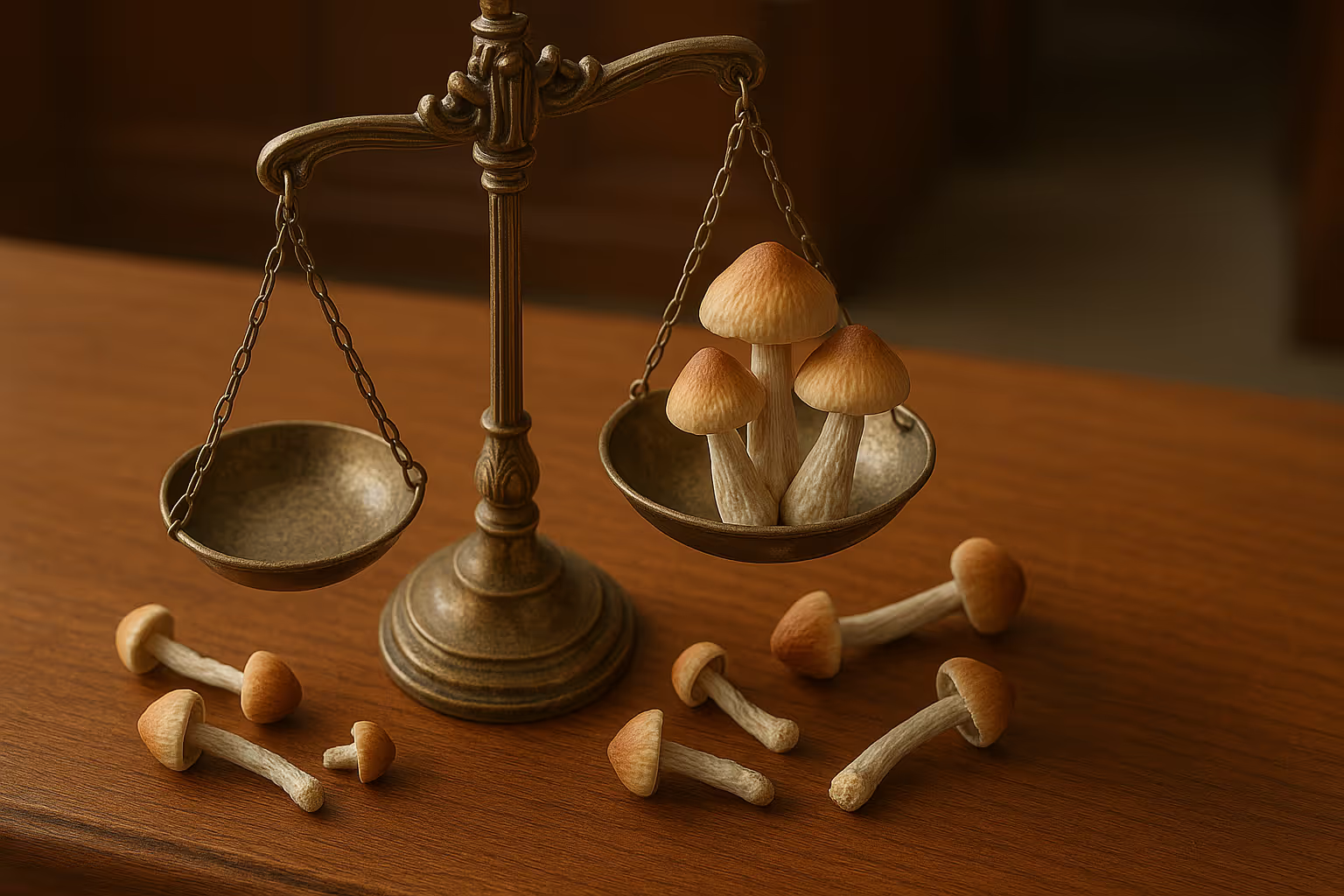Psilocybin Therapy for Clinicians With Depression From Frontline Care During the COVID-19 Pandemic

This is a research paper summary written by Tommaso Barba, a PhD candidate at the Centre for Psychedelic Research at Imperial College London.
Odyssey Take
Title: Psilocybin Therapy for Clinicians With Symptoms of Depression From Frontline Care During the COVID-19 Pandemic
Summary
Published in the prestigious medical journal JAMA Network, this study explored whether psilocybin therapy could help healthcare professionals struggling with depression after working on the frontline during the COVID-19 pandemic. Compared to a placebo, psilocybin led to significant and lasting improvements in depressive symptoms, offering a unique opportunity for clinicians to process their emotions and rediscover hope and meaning in their work.
What Was the Goal?
The study aimed to test if a single dose of psilocybin, administered in a supportive therapy setting, could alleviate symptoms of depression, burnout, and PTSD in doctors, nurses, and frontline healthcare workers. These professionals experienced immense psychological strain during the pandemic—witnessing suffering, working long hours, and often feeling helpless—leading to lasting mental health challenges.
What Happened in the Study?
- 30 clinicians took part, all suffering from moderate-to-severe depression caused by their frontline work during the pandemic.
- Participants were randomly given either psilocybin or niacin (a placebo) during a carefully guided therapy session, followed by three integration sessions to reflect on their experience.
- Psilocybin sessions occurred in a calm, therapeutic setting with music and trained facilitators to provide support. Participants were encouraged to process thoughts, emotions, and memories that surfaced.
The therapy focused on creating a safe space where clinicians could explore deeply held grief, guilt, and burnout, helping them integrate insights into their personal and professional lives.
Key Findings
- Significant Improvement in Depression
Clinicians who took psilocybin showed dramatic reductions in depression symptoms, with improvements that persisted for at least 6 months. Many described a profound sense of emotional relief and reconnection with themselves.
- Processing Grief, Guilt, and Trauma
Psilocybin allowed participants to confront emotions they had been avoiding, often tied to the suffering they witnessed. The experience helped them release guilt and gain perspective on their actions, recognizing their efforts to care for patients under impossible circumstances. As one participant put it:
“I felt like I was participating in the torture of people.”
- Insights That Led to Lasting Change
Many participants emerged from the experience with a renewed sense of purpose and healthier attitudes toward self-care:
“I realized I don’t have to carry it all by myself.”
“It’s not about being a superhero. I can lean on others and allow myself to be human.”
- Positive Shifts in Perspective and Identity
Participants described feeling reconnected to their values, relationships, and personal well-being. For some, this shift helped them make positive changes in their work:
“I learned to embrace the dystopia… You have to adapt.”
- Potential Benefits for Burnout
While the study primarily focused on depression, there were also encouraging signs of reduced burnout, despite them not being statistically significant. The authors suggested that the small sample size might have contributed to that, highlighting the need for bigger studies in this area.
Why Is This Important?
Healthcare professionals bore immense emotional burdens during the pandemic, often with no time or space to process their trauma. This study demonstrates that psilocybin therapy, when paired with professional psychological support, can help clinicians reconnect with themselves, process their grief, and find new ways to approach their work and lives. Unlike traditional treatments, psilocybin therapy works quickly and deeply, offering a transformative experience that helps participants uncover personal insights and restore a sense of meaning. As one clinician described:
“I was able to step back and see what I accomplished, not just what I couldn’t do.”
For a group that gave so much, these findings point to a new path for healing and recovery, enabling clinicians to care for themselves as well as they care for others.
Read Next: Psilocybin Therapy for Depression

.svg)









.svg)